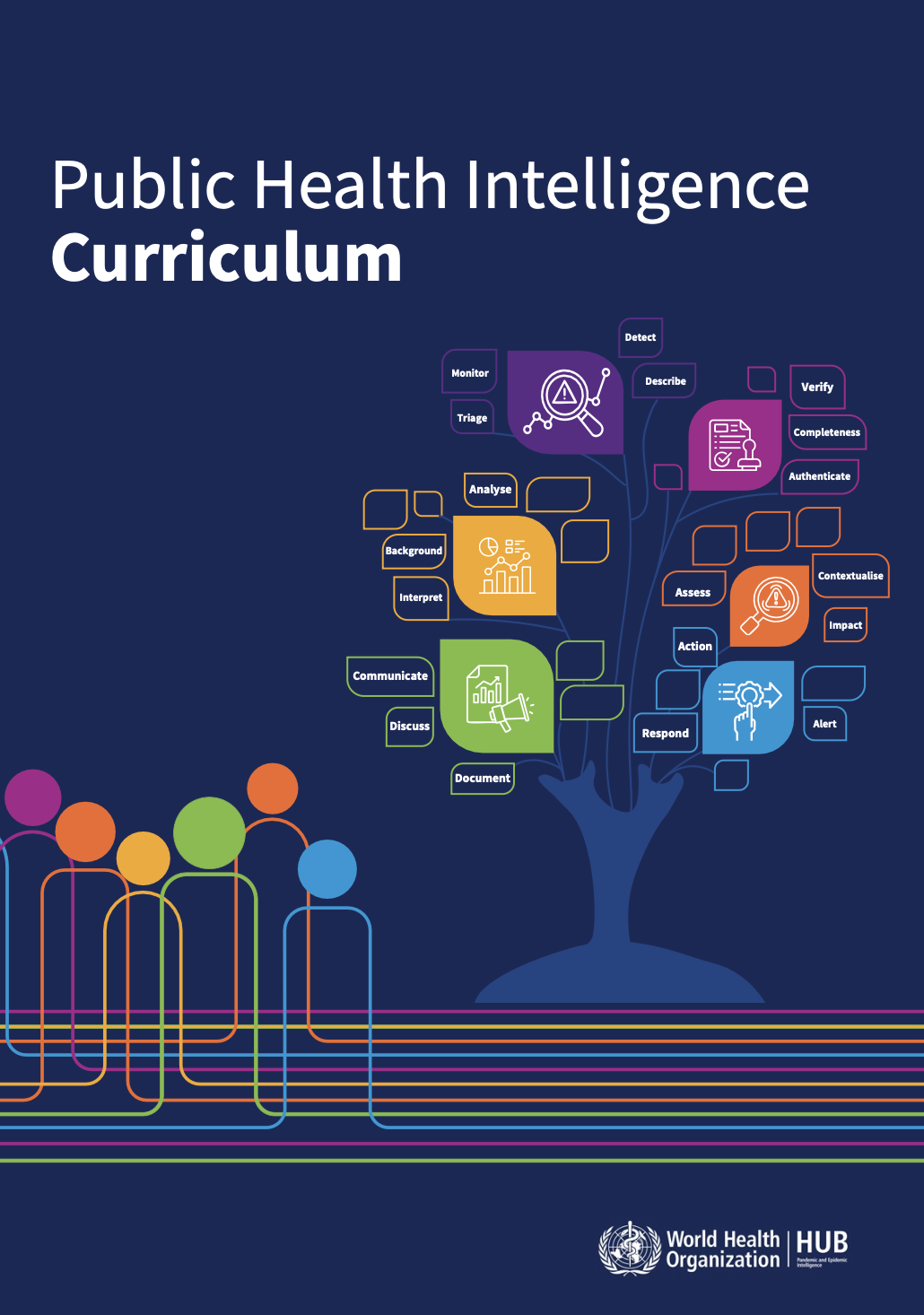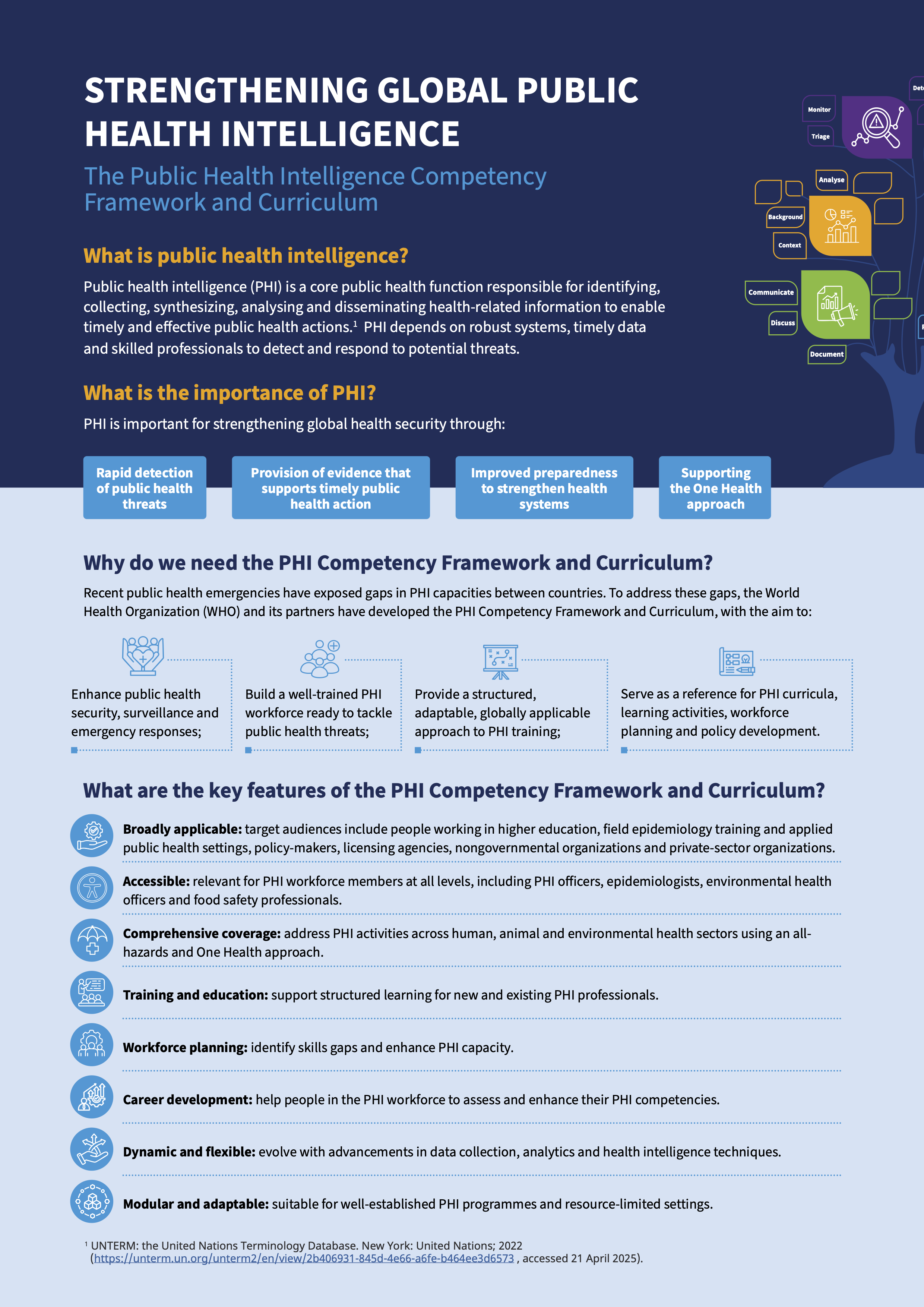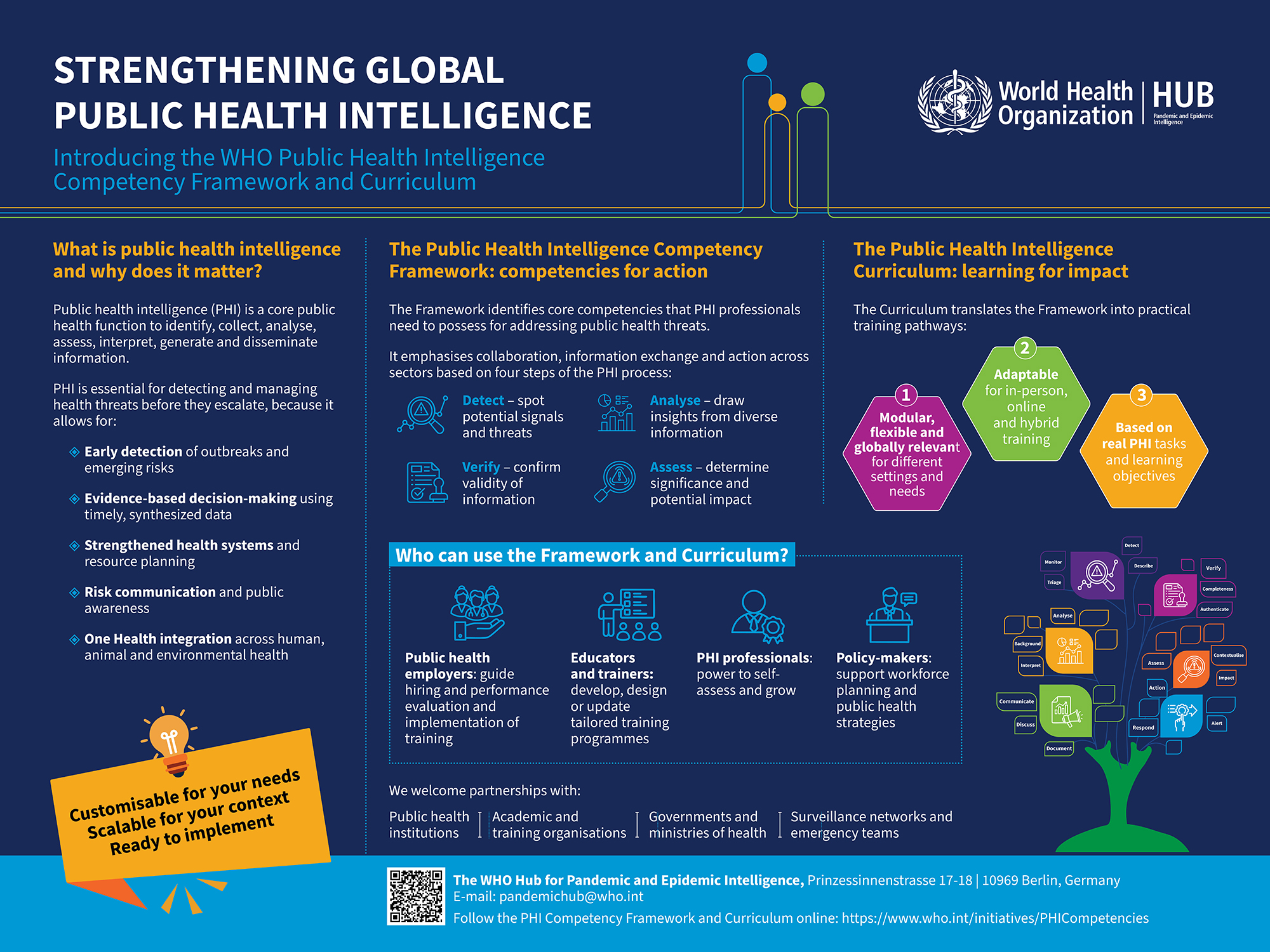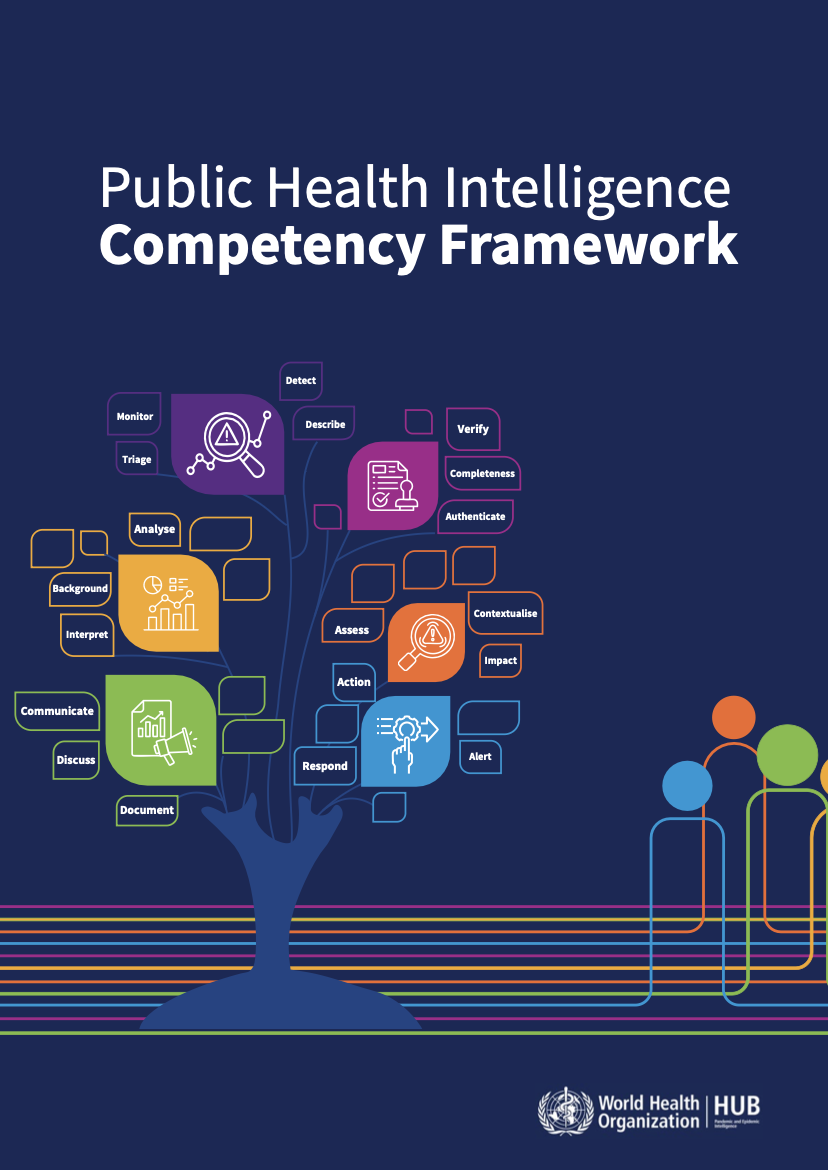

Strengthening Public Health Intelligence Competencies Initiative
About the Initiative
In today’s interconnected world, timely, reliable and actionable public health intelligence (PHI) is the foundation of an effective public health response.
Recent emergencies, such as mpox and the COVID-19 pandemic, have underscored the need for professionals who can quickly and effectively identify, assess and communicate important new information to support a prompt response. To fulfil this vital role, they must be equipped with the skills to transform an abundance of raw data from diverse sources into insights, information and knowledge that drive sound and effective public health decisions and actions.
Through the Public Health Intelligence Competency Framework and Curriculum, the World Health Organization (WHO) supports professionals and institutions around the world in developing the competencies and learning systems needed to detect, assess and manage health threats as early as possible to mitigate and minimise their impact.
Use this website to explore the framework, curriculum and tools, and to learn how public health professionals can apply them to stay ahead of public health threats.
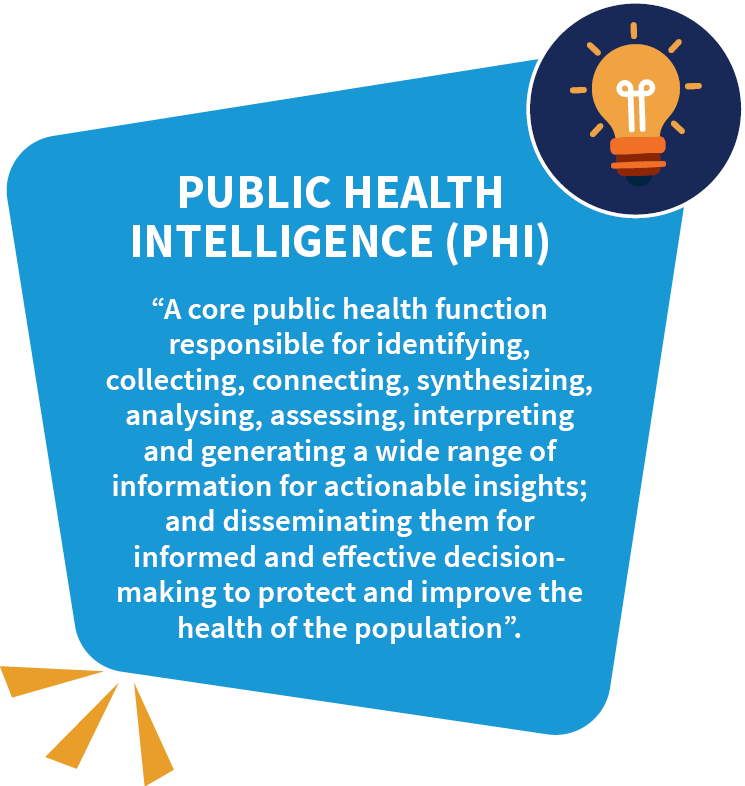
The Public Health Intelligence Competency Framework and Curriculum
Following recent public health emergencies, it has become evident that PHI capacities vary significantly across countries. To address these gaps and strengthen the global PHI workforce, the WHO Hub for Pandemic and Epidemic Intelligence, together with its partners and collaborators, has developed a competency-based Framework and Curriculum.
These resources offer a structured, adaptable, and globally relevant approach to building PHI capabilities for both routine PHI activities and emergency response.
By adopting and implementing these products, Member States and organisations can enhance health security, surveillance, and emergency response efforts, ensuring a skilled workforce ready to tackle emerging public health threats.
Explore resources
What is public health intelligence and why does it matter?
Major global public health events have highlighted the growing importance of providing timely information and context to facilitate effective preparedness and action. In these situations, PHI is crucial to identify, collect, synthesize, analyse and disseminate actionable information to relevant stakeholders, to protect the health of individuals and communities.
Effective PHI depends on robust systems, timely data and skilled professionals to detect and respond to potential threats.
PHI is important because it enhances global health security through:
- Surveillance, monitoring and early detection of public health threats – continuous tracking and rapid identification of emerging diseases, outbreaks and public health emergencies such as pandemics, antimicrobial resistance and environmental hazards enable timely interventions and effective control measures. In the realm of PHI, this often takes place through collaborative surveillance.
- Evidence-based decision-making – by incorporating and analysing data from multiple sources, PHI ensures health policies, resource allocation and interventions are based on solid evidence.
- Strengthening health systems – insights from PHI contribute to improving health-care infrastructure, resource distribution and universal health coverage.
- Risk assessment and communication – PHI is used to assess risks, inform the public and guide governments in taking preventive measures against health crises.
- One Health approach – PHI integrates human, animal and environmental health data, addressing interconnected health risks such as zoonotic diseases and climate change impacts.
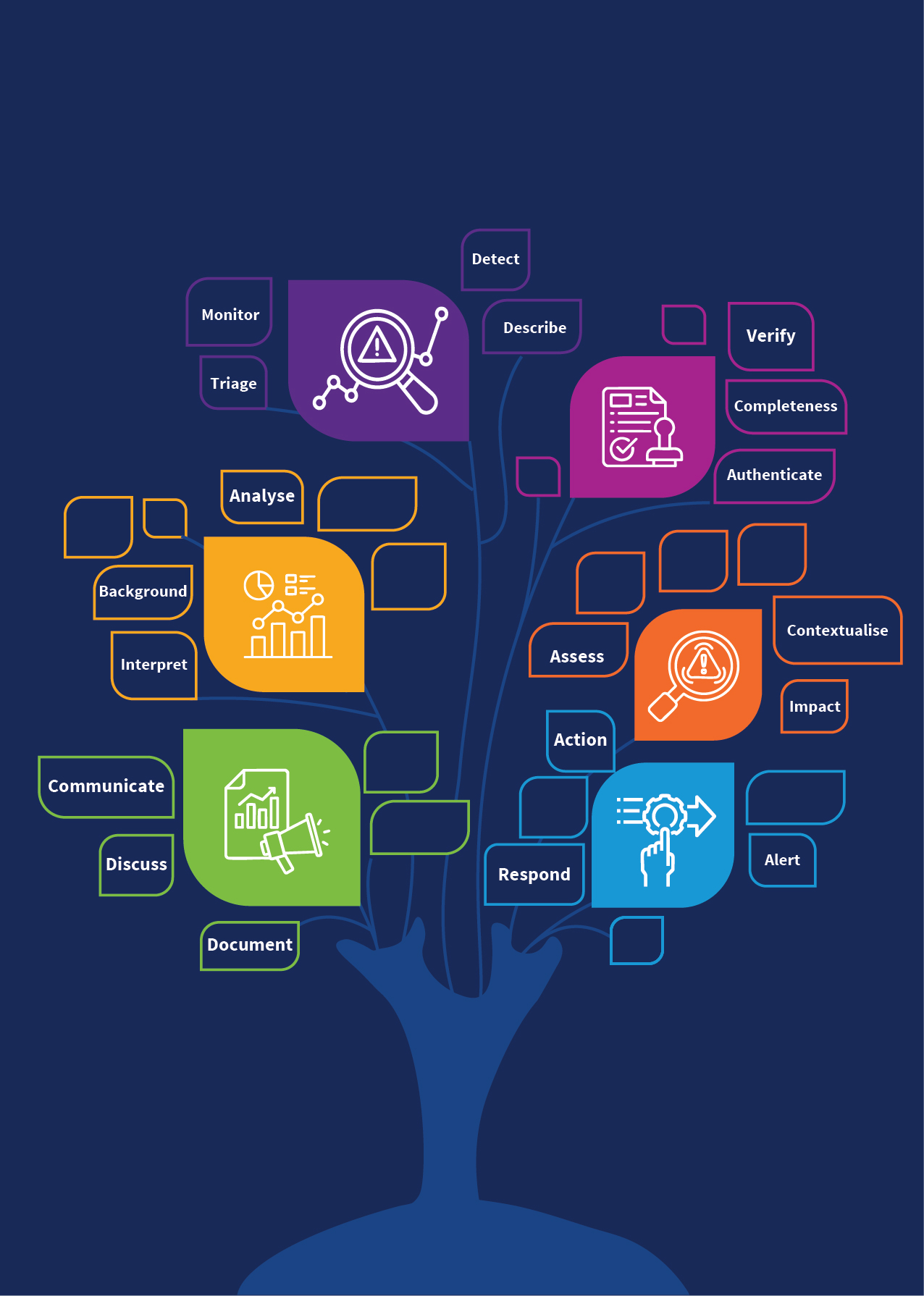
Contact and collaboration
Get Involved
We welcome collaborations with public health institutions, governments, and academic organisations to strengthen PHI training and workforce development.
Contact us for inquiries, partnerships, or more information: [email protected].

